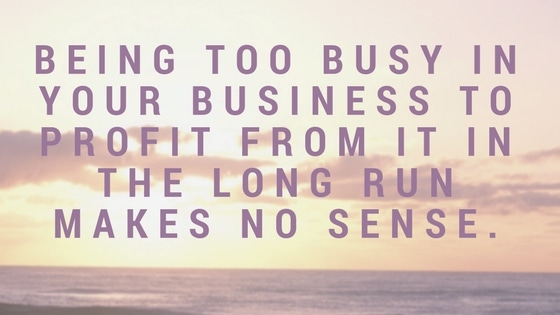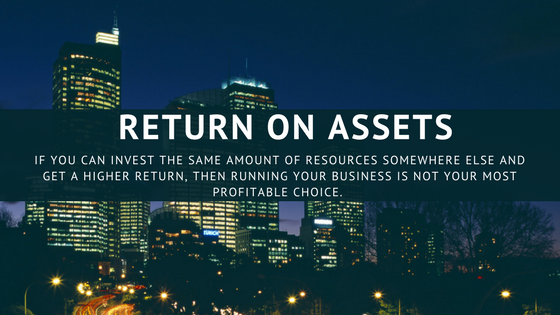No one starts out building a house without a plan. In the same way, profitability is more likely when an entrepreneur creates a detailed plan. Without the big picture view, you can't put together the little pieces: If you have ever tried to put together a puzzle without the big picture on the box, you know what I am talking about. A budget is like the picture your business patterns
Learn More

Want to retire from your business someday?
How would you like to someday retire from your business? That is someday build a business that affords you the time and money to enjoy the people and things you like to do outside business? I often talk to entrepreneurs and even though this is something they want, they never take the time to plan for it. They somehow hope that someday they will wake up and have a business
Learn More
Working Capital: Profitability is not Everything.
Be careful of accounting definitions
The accounting definition of working capital = current assets – current liabilities.
On the surface this has very little meaning.
Current assets & liabilities could contain items that is not related to operations.
Know your numbers so you know your business
Working capital: Internal Vs External
Working capital is used to evaluate the efficiency of cash management in meeting the demands of the direct cost of goods/
Learn More
Accounts Receivable Turnover
Do you know what your AR is costing you?
Why accounts receivable?
Increase sales.
Downside of Accounts Receivable
Bad debt
Opportunity cost of cash
Additional staff required to maintain accounts
Interest cost if business has to take loan to meet working capital needs
Background checks/ collection services
Office supplies like paper and ink sent to customers who owe
Credit card and accounts receivable
When you offer your customers the
Learn More

What is Return on Assets?
To truly understand return on assets, you must first be able to differentiate between operating and non-operating assets.
Operating Assets
Operating assets are economic resources owned by the owners of the business. Operating assets are bought to generate future revenue and can usually be converted to cash in the future. This means they can potentially be resold after use. Operating assets often include:
Cash – at a minimum your must have
Learn More

